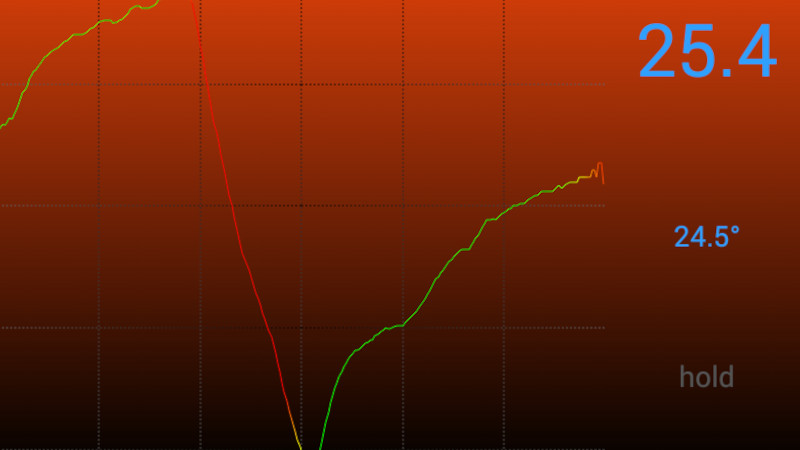Homebrew HVAC systems are one of those projects that take such a big investment of time, effort and money that you’ve got to be a really dedicated (ideally home-owning) hacker with a wide variety of multidisciplinary skills to pull off an implementation that can work in reality. One such HVAC hacker is [Vadim Tkachenko] with his multi-zone Home Climate Control (HCC) project that we covered first back in 2007. We now have rare opportunity to look at the improvements fifteen years of part-time development can produce, when a project is used all day, all year round in their own home. At the start, things were simple, just opening and closing ventilators with none of those modern MQTT-driven cloud computing stuff.
The current implementation, called DZ (GitHub project link) has been rewritten using modern reactive programming techniques (which apparently is a good thing for an HVAC control system) with the HCC-core application running on anything UNIX, but fits nicely on the Raspberry Pi. Measurement data (temperature, humidity, etc.) can be taken from 1-wire devices as well as XBee modules, enabling wired and wireless sensing around the installation. The system can control various air management appliances, such as heaters, heat pumps and fans depending on the need for heating, cooling or ventilation. Don’t forget that often neglected third leg of HVAC, the ‘V’ part is critical for a healthy house. The remote control and monitoring is courtesy of an Android application (HCC-Remote) which allows users to visualise the current status and what the HCC is currently doing to keep the programmed climate in check.
Data are transported using the common MQTT protocol, allowing simple connectivity to any sensors or controllers that already exist in an installation, with HCC providing integrations for ESPHome as well as Home Assistant, so there are plenty of options for building a system around existing hardware. The project is fairly big (as you’d expect for this length of time) but [Vadim] would like to stress that they see a lot of re-inventing of the wheel on this subject, and a good look at HCC may save some people a lot of pain implementing a system without such a solid grounding.
If your needs are more basic, perhaps this simple ESP8266-based smart vent will suffice? And, if the control system is less of a problem, and you’re more interested in the actual physical implementation, why not check out this DIY Energy Recovery Ventilator (ERV) project?
















Not a hope, as you well know – and shameful clickbait. Steve Ciarcia’s Circuit Cellar HVAC/home automation system “HCSII” predates this to 1992. I think the original HCS dates back to somewhere post 1985.
Is This The Oldest Open Source HVAC Project In Existence? Basically, old yes, oldest no.
Between the line “Open Source” here means the sources are available and tracked openly thus you can see evolution of the project like the idea this article
HCS II was open sourced in July of 2001. Before that the APIs/protocols were open.
Bam, first thought in my head as I read the title, “Didn’t Ciarcia do one?”
Oldest maybe, but def not the only…. I built my own hydronic system to heat my entire garage and run it with an arduino…go figure …lol
And you share the project on on witch repository, please ?
I manually roll down both parts of my cars A/C when it get hot.
have they open sourced windows now?
Just the control logic
440 air conditioning. 4 windows open at 40 MPH.
..not really diy HVAC.
If you REALLY want a 100% diy HVAC system that works then check out:
https://ecorenovator.org/forum/showthread.php?t=5017
https://ecorenovator.org/forum/showthread.php?t=5555
https://ecorenovator.org/forum/showthread.php?t=7379
This is a home made air to water HVAC heating/cooling system with 100% home designed/developed control system. Working now perfectly for several years – ok the V part is a bit lacking but with ceiling fans that’s easily remedied and it works for me.
MisterHouse never gets any love. It’s always been open and is much older.
HAD covered it here – once, briefly – in 2005
https://hackaday.com/2005/07/26/linux-home-automation/
It seems to have stopped progress since 2017 on looking at the website, but I used it from V1.0 (IIRC), around 1998, and it’s been free and open source from the start.
That was my first HA love and the second reason I started contributing to open source. I was thinking fondly of the old Mister as I read these comments.
This is a very old home automation setup
https://www.youtube.com/watch?v=0BHIknNa6Eg
You mean someone left the door open again?
Oldest? Not even close. The windcatchers in northern Africa and Arabia have been in use for more than 3000 years. Semiautomatic design, no active patents and no fancy electronics that will fail. Not even a 555 in sight.
In the 80’s and 90’s our open source repositories were called magazines. All my HCC stuff is in Nuts&Volts magazine… along with a few dozen other people. Then we started calling our repositories message boards.
This reminds me of a conversation I had at a college last month. The kid thought Facebook was around in the 90s and that Adrian Bowyer invented 3D printing.
Blew his mind when I showed him articles in my old magazines from 1980. A group of enthusiasts were discussing FDM printing using discarded plotters (pen printer) and experimenting with various plastics like hot-melt. One of them was Chuck Hull. All source info given.